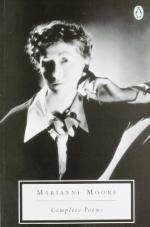|
This section contains 3,123 words (approx. 11 pages at 300 words per page) |

|
Poetic language has long had a special prestige in Japan. The earliest extant written texts, including the Kojiki (Record of ancient matters; 712), Nihonshoki (Chronicle of Japan; 720), and Man'yōshū (Collection of Ten Thousand Years; late eighth century), all preserve examples of ancient oral poetry or song, as well as later written verse. The ancient inhabitants of the Japanese archipelago, like many traditional peoples, believed that ritual song or recitation had a magico-religious power. Special ritual and poetic language possessed the ability to move the deities or spirits to act in specific sorts of ways. The term kotodama (koto, "words"; and tama, "animating spirit") refers to this magico-religious power. Man'yōshū 1:27, for instance, is an example of incantational praise poetry. When recited by a ritual and political leader while surveying the land, the incantation was believed to assure the vitality and fertility of the land...
|
This section contains 3,123 words (approx. 11 pages at 300 words per page) |

|




